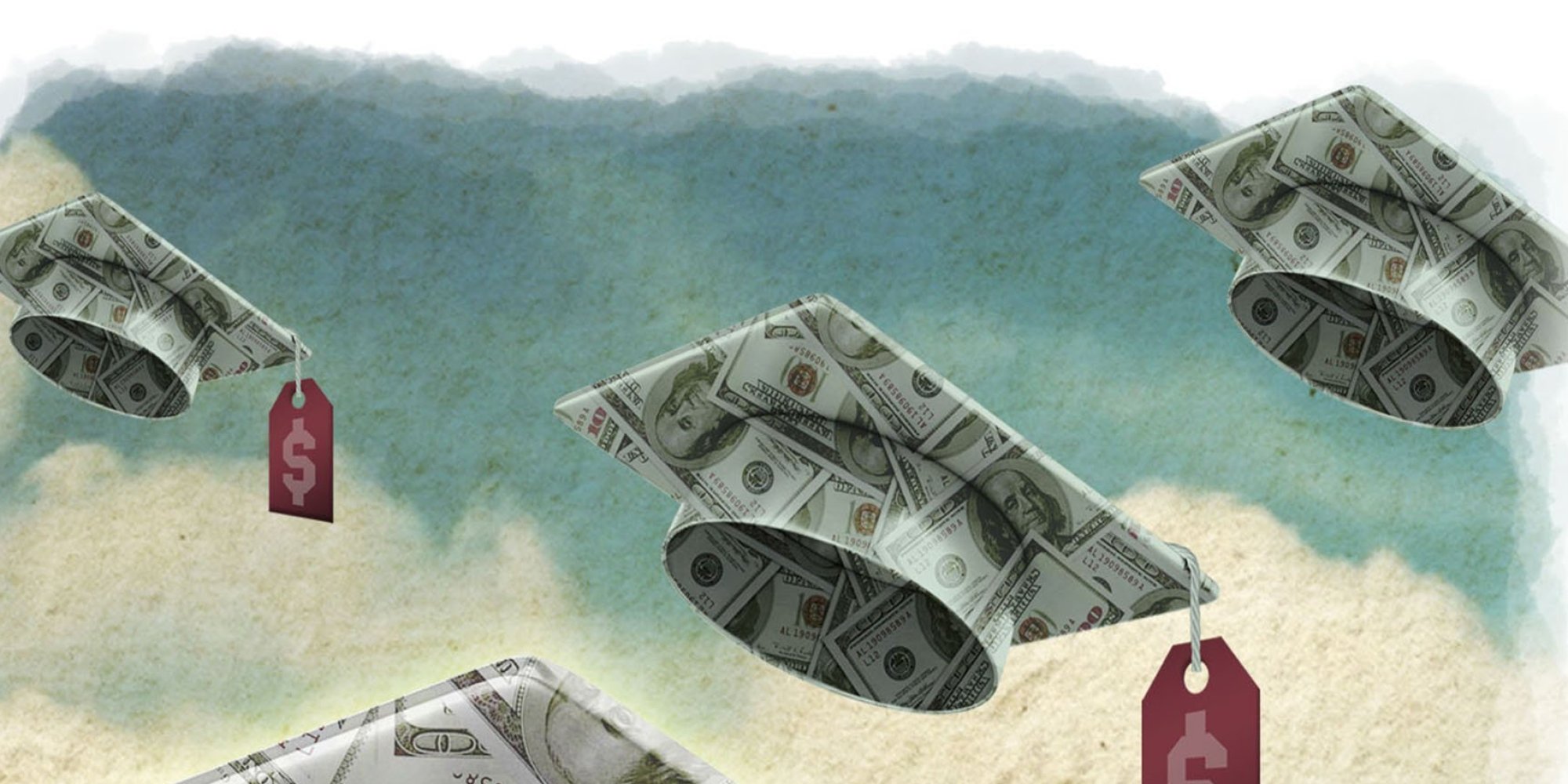By Valerie Franklin (The Cascade) – Email
Print Edition: February 25, 2015
Hands up if you’ve never been haunted by images of a life in your parents’ basement, pulling in minimum wage making sandwiches at the deli, while the degree you’ve spent four (or six) years of your life working on weighs like a $30,000-plus chain around your neck, gathering interest.
No one?
BC’s minister of advanced education Andrew Wilkinson infuriated students across the province this week when he declared that 70 per cent of BC post-secondary students graduate debt-free, and that the 30 per cent of students who do graduate with debt incur only about $20,000 each. The news article in which his statements appeared was widely shared on social media among incredulous students whose experiences obviously differ from his claims.
“If [Wilkinson’s] numbers seem unbelievable, it’s because they’re completely untrue,” Steven Beasley of the Canadian Federation of Students BC Branch told CBC. According to the 2013 BC Student Outcomes Survey by BC Stats, only 51 per cent of students graduate debt-free, and the average graduate owes more than $30,000 by the time they don their mortarboard.
In this rocky economy, a post-secondary degree is necessary to escape a McCareer in the service sector, but it’s almost impossible to pay for increasingly expensive tuition and living costs without a student loan; you’re damned if you do and damned if you don’t. Going into debt for education seems almost inevitable, especially for students who don’t have family to support them — or worse, for those who are trying to support their own families. And thanks to decisions made on the provincial and federal levels, students are required to take on amounts of debt higher than ever before.
[pullquote]“Debt robs students of hope and replaces it with desperation, yoking them to a life of trying to repay debts instead of pursuing their passions.”[/pullquote]
But debt is one of the reasons students are among the highest demographic for suffering from mental illness. Suicide is the second highest cause of death among young people; for university students, the weight of their seemingly inescapable debt may be a significant factor. (We just came out of reading break, but the reason why most universities have a midwinter break is not to let students catch up on reading — it’s about easing the psychological pressure on students at a time of year known for its high suicide rate.)
Perhaps because of the gloomy time of year, UFV has seen increased attention on mental health in recent weeks. Flip to page 16 in this issue and you’ll find a new weekly column called Safe Space, where student writers tackle issues of mental health. This semester UFV’s health, safety and wellness offices have also collaborated with human resources to offer a series of winter wellness workshops for students, focusing on both mental and physical health. And if you stop for a beer in AfterMath, you’ll see stacks of blank postcards on tables inviting students to anonymously share their experiences and stories about racism, giving frustrated or isolated students from marginalized groups a way of weaving their stories into the university’s mosaic.
While the counselling centre can be hard to get into, they’re there for you too — especially if you’re experiencing a crisis. UFV’s financial aid office can also offer assistance, including resources on their section of the UFV website, for students who are struggling beneath that debt load or having trouble making ends meet.
These resources are in place for a reason: because it’s recognized that student debt robs students of hope and replaces it with desperation, yoking them to a life of trying to repay debts instead of pursuing their passions. This is why it’s so frustrating is when those struggles aren’t recognized.
Wilkinson’s blasé attitude toward student debt has the same dismissive ring that we often hear in the voices of people who tell clinically depressed people to cheer up: the sanctimonious preaching of someone who has never suffered through the thing they’re talking about. For BC’s minister of advanced education to be so ignorant of students’ struggles with debt is not only disturbing — it’s disrespectful to the people he’s supposed to serve.


